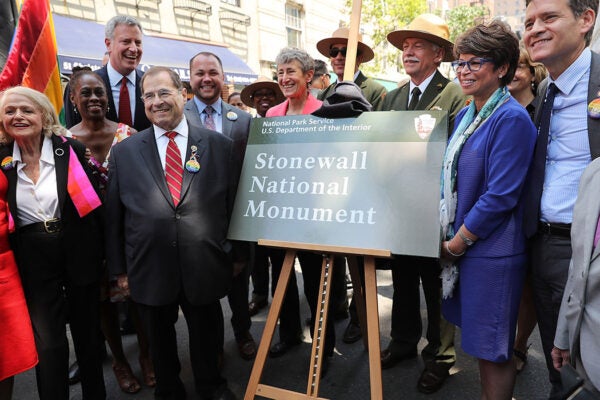The Rise and Fall of the Equestrian Cultures of the Plains
The introduction of the horse to North America by the Spanish transformed the lives of the Indigenous peoples of the Plains in decidedly mixed ways.
Exporting the Convict Clause: Slaves of the State in the Canal Zone
The criminalization of Blackness enabled by the Thirteenth Amendment brought chain gangs to the construction projects of the Panama Canal Zone.
Stonewall National Monument Declaration: Annotated
In June 2016, President Obama proclaimed the first LGBTQ+ national monument in the United States at the site of the 1969 Stonewall Uprising in New York City.
Walking the Race Line on the Train Line
Investigators never reached a conclusion about the death of Pullman porter J. H. Wilkins, but his killing revealed much about the dangers of his profession.
Military Policing and Militarizing the Police
The use of military strategies inside the borders of the United States has long been connected with racial politics.
How Steelworkers Stopped a Paramilitary Movement
Despite failing to break the Homestead Strike in 1892, the Pinkerton Agency demonstrated the extralegal threat paramilitary agencies created for Americans.
The Ever-Lengthening History of Tobacco
People have been smoking in the Pacific Northwest for more than 4,500 years.
Mapping “Indian Country”
In the early 1800s, the Native people of the Plains region didn’t generally think about their land in terms of tribes, territories, or racial difference.
Dear Deirdre: The Japanese American Agony Aunt
Using the nom de plume Deirdre, California-born writer Mary “Mollie” Oyama Mittwer offered advice on changing gender roles and cross-ethnic relationships.
Thomas Jefferson: A Vote for Cutting Off Your Nose
To reduce Virginia’s use of the death penalty, Thomas Jefferson proposed using permanent disfigurement as a punishment for rape, polygamy, and sodomy.









